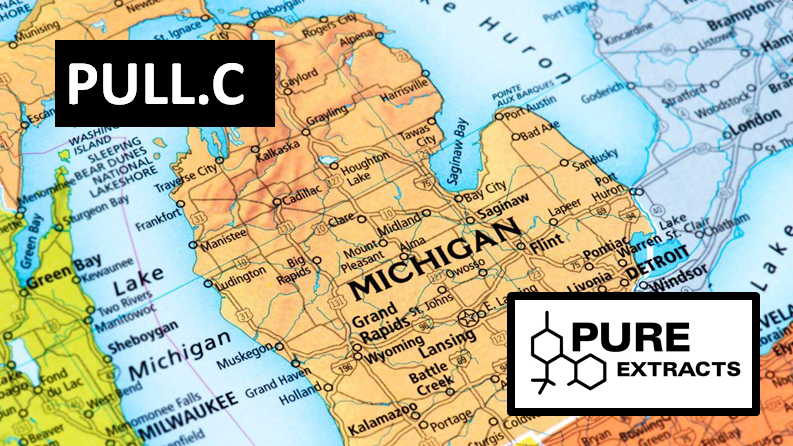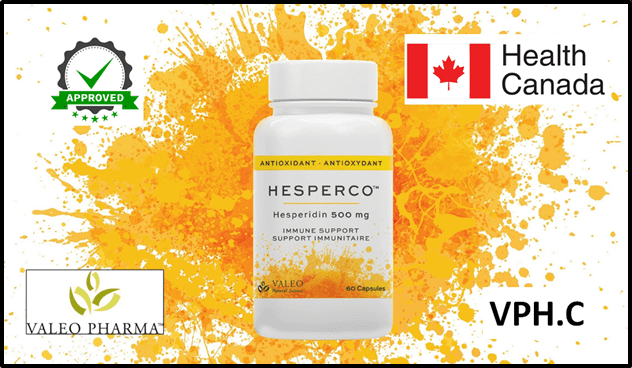On September 3, 2020 Valeo Pharma (VPH.C) received quick government approval for its Hesperco Natural Product License from Health Canada.
Valeo is a specialty pharma company that commercialises prescription products in Canada with a focus on Neurodegenerative Diseases, Oncology and Hospital Specialty Products.
Hesperco is an antioxidant engineered to provide immune system support.
“Quick-government-approval” is not a phrase you hear every day.
But that’s what happened.
To review: in April, 2020, Valeo entered into a licensing agreement with Ingenew Pharma to commercialise Hesperco.
Ten days ago, Valeo announced that it had filed for a Natural Product Licence with Health Canada for its proprietary “bioflavonoid formulation” Hesperco.
Today – you can order the product on-line for $29.99 – and it will be shipped to retail stores later this month.
“With the receipt of Health Canada’s approval, we are now proceeding with the commercial launch of Hesperco capsules and are anticipating product availability by end of September 2020”, confirms Steve Saviuk, Valeo’s President and CEO.
Hesperco is primarily derived from the skin of immature citrus fruit and can also be found in lower concentration in some vegetables and aromatic herbs.
“There is a strong scientific and medical rationale for the use of Hesperco capsules to support the immune system,” stated Pierre Laurin, CEO of Ingenew, who added that it could “potentially fight off symptoms associated with coronaviruses.”
On August 24, 2020, Saviuk spoke with Steve Darling from Proactive Vancouver about the manufacture and commercialization of Hesperco.
The timing of the Hesperco launch is good.
There are an estimated 10 million people with compromised immune systems in North America, according to the Bulletin of Atomic Scientists.
Anecdotally, that “10 million” estimate seems conservative. I have five close friends with “compromised immune systems”. Since this pandemic took hold five months ago, none of them have entered any interior public space.
They work from home, shop on-line, don’t see their grandchildren, go for walks at night when the sidewalks are mostly deserted.
“Someone who is immunocompromised has a weakened immune system that does not respond properly to invading infections or pathogens,” explains CDHF, “Meaning your body cannot fight off things like the coronavirus as well as a person with a fully functioning immune system”.
“Some of the factors that may play into a weakened immune system are: recent surgeries, age, genetics, having a chronic illness or by taking certain medications. Immunosuppressants are one such example,” continued the CDHF.
It is legitimate for investors to be skeptical about pills that claim to boost immunity.
“Immune system boosters” have the early makings of an unfortunate pandemic buzzword,” writes Vanity Fair, “No one can promise immunity from the deadly virus.”
“The best thing you can do for your immunity is totally free,” the writer continued, “Sleep more. I’m serious. Sleep will do more for your immunity than any supplement possibly could.”
That’s may be true – but sleep is in a long-term bear market.
Back in 1910, people slept an average of nine hours per night.
Assaulted by bright blinking screens on TVs, computers and cell phones – 40% of adults now sleep less than six hours a night.

Expecting insomniacs to boost their immune systems by sleeping more, is like suggesting an obese person lose weight by exercising.
Bad habits are hard to break.
“The global immune health supplements market is likely to grow astonishingly,” states Fortune Business, “the immune health supplements market size was USD $16.32 billion in 2019 and is projected to reach USD $29.40 billion by 2027.”
“Valeo Pharma creates partnerships, internationally and with the Canadian Healthcare Industry, to bring innovative products to the market, quickly and efficiently,” explained Equity Guru’s Ehsan Agahi.
“Here’s how big pharma generally works:
- Spend money on research to create a new/better drug
- Apply for regulatory approval
- Repeat Step 1 and Step 2, do more research, more trials, and after some
time, - You have regulatory approval and can sell your drug
- Market and commercialize your drug, this is the part that justifies the
spending in Steps 1 through 3
Of these, Steps 1 to 3 have the highest cost. Valeo avoids both these costs. They partner with companies that have drugs that are already in the commercialization stage.
Valeo has established infrastructure and partnerships to navigate the Canadian landscape of drug commercialization.”

“So far there is no vaccine or effective drugs that can be used for prevention and treatment of COVID-19,” stated Ingenew Pharma, “Potential interventions can generally be divided into two categories: 1) interventions that act on the human immune system or human cells, and 2) interventions that act on the virus itself”.
Ingenew is working on #1: the “interventions that act on the human immune system.”
In the next 12 months we’ll find out if Hesperco flies off the shelves.
What we know now is that Valeo spent zero dollars on R&D, got quick Health Canada approval, and have an “on-trend” product designed to boost immune systems.
You can see Valeo’s full product portfolio here.
- Lukas Kane
Full Disclosure: Valeo is an Equity Guru marketing client.


Leave a Reply